In the News

January 30, 2024
A transformational gift from philanthropist and Cornell alumna K. Lisa Yang ’74 will endow and rename the Cornell Wildlife Health Center as the Cornell K. Lisa Yang Center for Wildlife Health at the College of Veterinary Medicine.
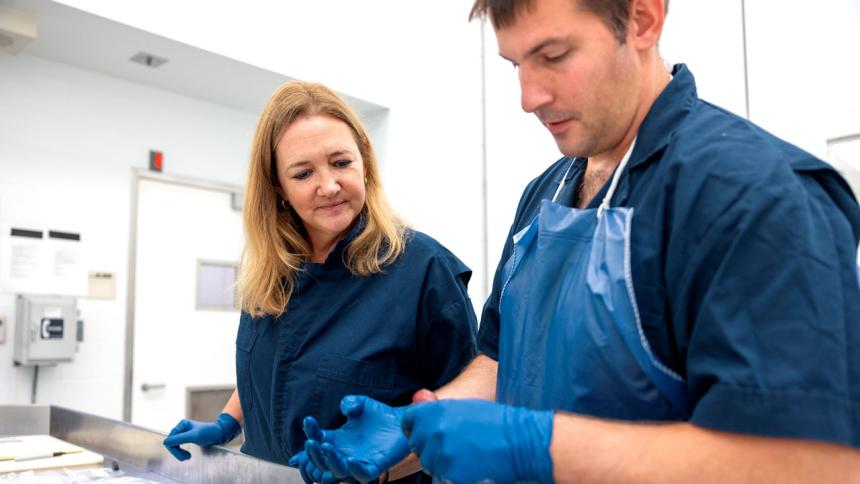
November 22, 2023
State agencies are stepping up education and outreach to promote voluntary adoption of non-lead alternatives, acting on recommendations from their Lead Ammunition Working Group, a multidisciplinary partnership that includes the Cornell Wildlife Health Lab.

Video
October 23, 2023
In this eCornell webinar, Dr. Steve Osofsky, Dr. Krysten Schuler, and Dr. Jennifer Bloodgood of the Cornell Wildlife Health Center at the Cornell College of Veterinary Medicine share their experiences from the field and the lab to illustrate how the health of wildlife and our own health are inextricably linked.
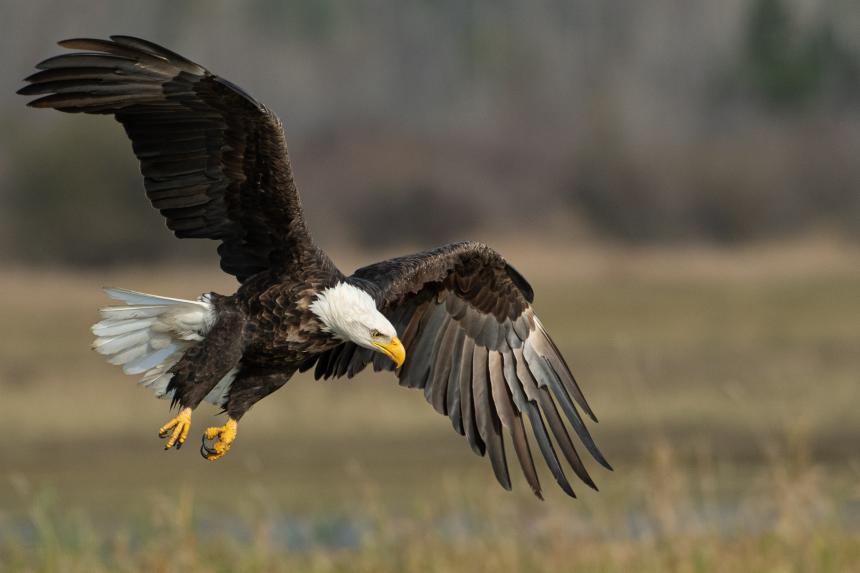
For Your Information
June 13, 2023
While the recent population recovery of bald eagles in New York State is a conservation success, evidence from necropsies suggest that ingested lead from ammunition fragments is causing morbidity and mortality to wild eagles.
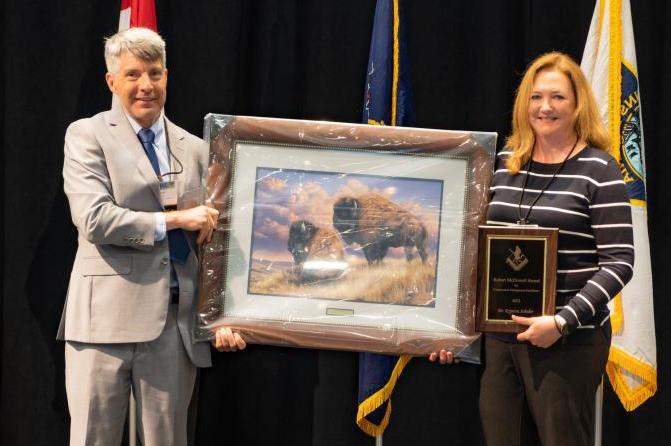
May 17, 2023
Congratulations to Cornell's Dr. Krysten Schuler, who received the highest honor from the Northeast Association of Fish and Wildlife Agencies—The Robert McDowell Award for Conservation Management Excellence.
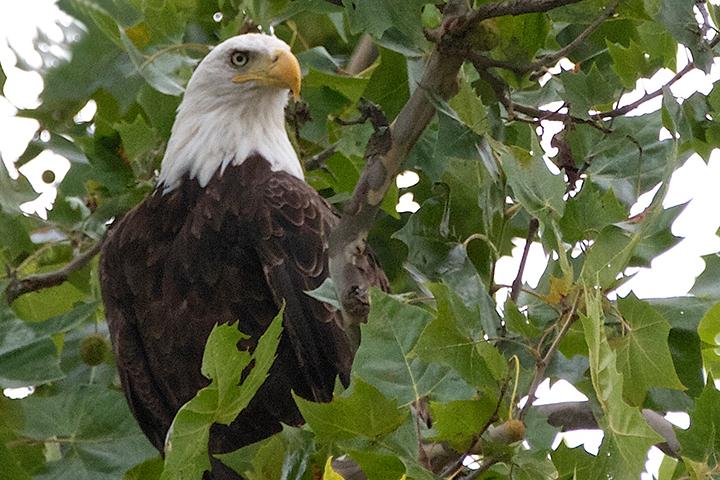
August 26, 2022
A bald eagle surprised fellow travelers as it was spotted being taken through a TSA checkpoint at a U.S. airport. Cornell's Dr. Krysten Schuler, who led a study showing bald eagles' population size is being threatened by lead poisoning, comments, "Even though the population seems like it's recovered, some perturbation could come along that could cause eagles to decline again."
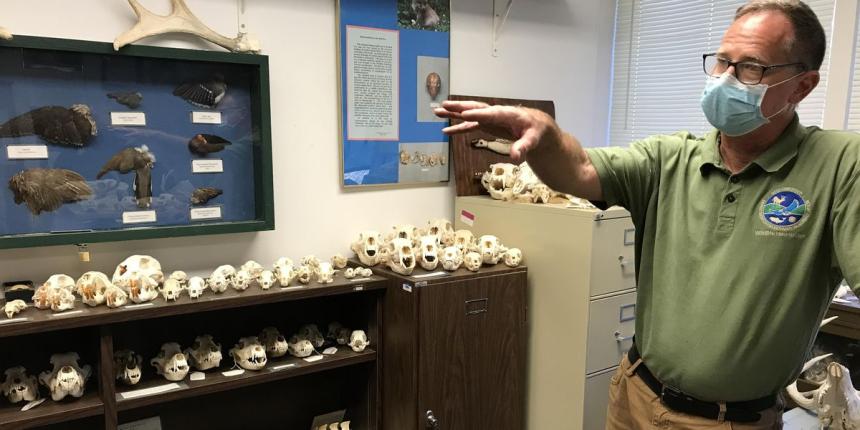
June 22, 2022
The effects of lead poisoning can vary depending on exposure, but they’re often devastating. Cornell wildlife ecologist Dr. Krysten Schuler notes that lead impacts every system in the body and that while eagles have been carefully studied, it’s likely that other animals are affected by lead poisoning too.

February 23, 2022
The bald eagle’s comeback is one of America’s most famous conservation success stories. But despite the boom in their numbers, bald eagles still face many threats, including poisoning from ingesting lead bullets.
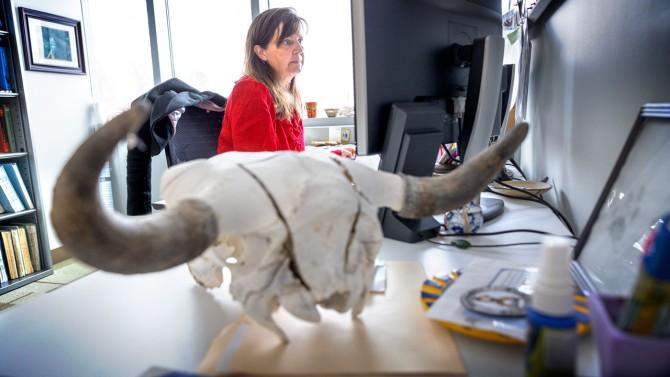
February 17, 2022
The New York State Wildlife Health Program is a key partnership between Cornell and the New York State Department of Environmental Conservation. The program coordinates responses when disease strikes New York’s wild animals and it helps prevent outbreaks, in domestic animals and people too, by translating data into policy.
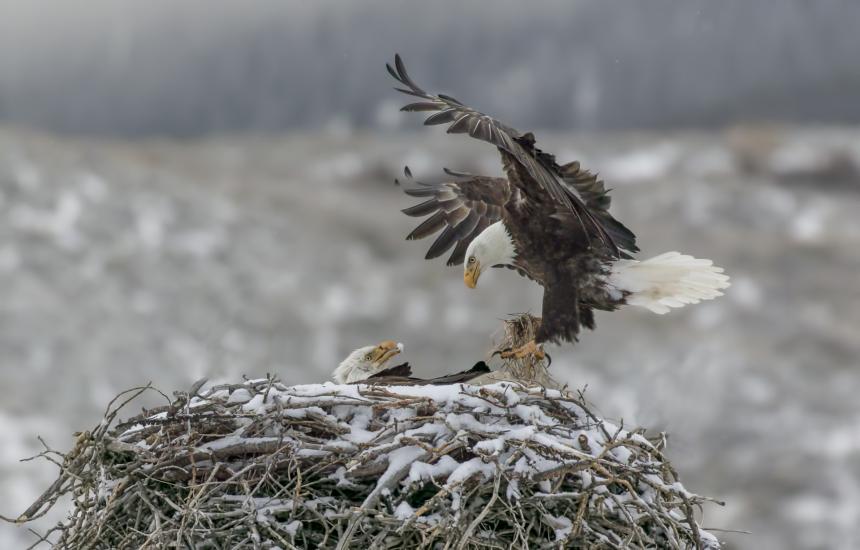
Blog
February 04, 2022
Long before I was aware of the problem, professionals of veterinary medicine and pathology treated, rehabilitated, or necropsied ill, dying, or dead bald eagles. The wild birds had been presented for care after they ingested lead fragments from spent ammunition....
